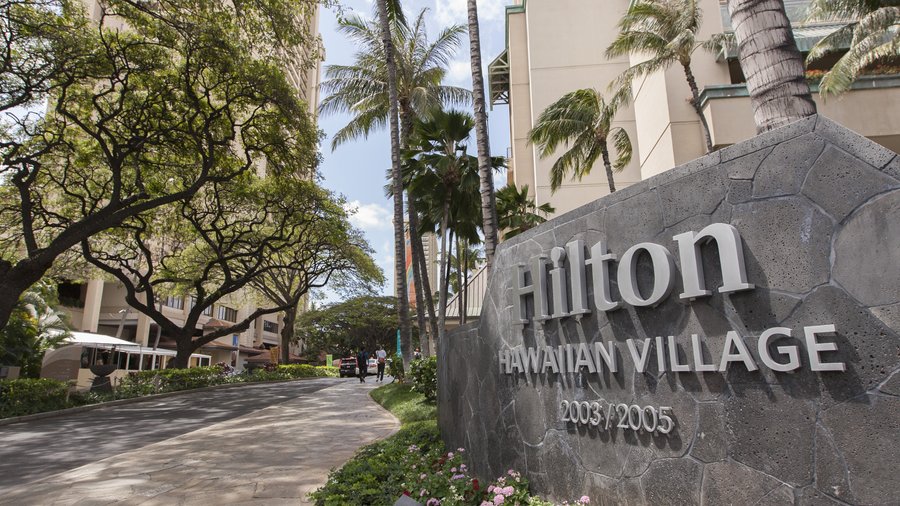Plans for construction of a new hotel in Waikiki, additional development at Ala Moana Center and renovations to three hotels on Maui could all be scuttled if a bill to eliminate a corporate income tax deduction for real estate investment trusts becomes law, according to the CEOs of four REITs with large commercial real estate holdings in Hawaii.
“Park Hotels & Resorts is in the planning phase related to construction of a new hotel tower on the site of the Hilton Hawaiian Village [Waikiki Beach Resort],” Thomas J. Baltimore Jr., chairman and CEO of Park Hotels & Resorts (NYSE: PK), said in a statement released Tuesday by the organization National Real Estate Investment Trusts, or Nareit. “Passage of SB 301 will force us to reconsider whether we will proceed with this and future capital projects in the state of Hawaii.”
Senate Bill 301, which would eliminate the dividend deduction for REITs, passed the House and the Senate and is now headed for a conference committee where the two chambers will iron out their differences, presumably before the Legislature adjourns next week.
Supporters of the bill say it’s only fair that REITs, which own some $18 billion in Hawaii properties, should pay their fair share of corporate income tax.
But REITs, which are required to pay out 90 percent of their profits to shareholders, have testified against the bill, saying it would create a disincentive to invest in Hawaii and could cost the state far more than any gains in revenue lawmakers expect to see.
On Tuesday, Baltimore and the heads of Brookfield Properties Retail, majority owner of Ala Moana Center; Host Hotels & Resorts (NYSE: HST), which owns hotels on Maui and Oahu; and Sunstone Hotel Investors Inc. (NYSE: SHO), which owns the Marriott Wailea Beach, outlined specific ways the bill could affect the way they do business in Hawaii.
“If SB 301 is enacted, we would be obligated to consider all options, including the ownership of, and restructuring the manner which we operate, our Hawaii assets to achieve an appropriate return on our invested capital,” Baltimore said. “We would also plan to reassess future investments in Hawaii versus investing in states where our financial commitment will be more welcomed.”
James F. Risoleo, president and CEO of Host Hotels & Resorts, noted that his company, as part of its capital allocation, makes “renewal and replacement capital expenditures that maintain the quality and competitiveness of our hotels,” which include the Hyatt Regency Maui on Kaanapali Beach, Andaz Maui at Wailea Resort, Fairmont Kea Lani, Maui and Hyatt Place Waikiki Beach.
“Enactment of SB 301 would create a strong disincentive for us to employ this approach at our properties in Hawaii,” he said in the statement. “It would force us to revisit our plan to begin scheduled renovation work at the Hyatt Regency Maui in September 2019, as well as discourage future investments in our properties, potentially affecting hundreds of local jobs.”
The House appointed its conferees — Reps. Angus McKelvey, Roy Takumi, Lisa Kitagawa and Lauren Matsumoto — on April 15. The Senate on Monday named its conferees — Gilbert Keith-Agaran, Sharon Moriwaki and Kurt Fevella.
